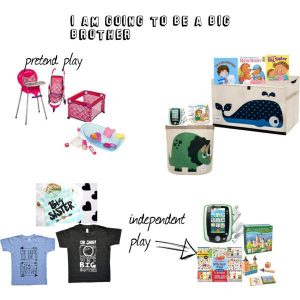
4 Secrets to Get Your Toddler to Behave
As a family therapist that focuses on helping parents have peace & harmony at home, questions about disciplining a toddler come up very frequently. I am also a mother of a beautiful two year old little girl, and she definitely keeps me on my toes. So parenting of a toddler is on my mind a lot these days both professionally and personally.
The age group of 0-5 year is a very challenging time for most parents, as they are in a time of their life that they physically demand a lot of time and energy from their parents. Don’t get me wrong, every age group has their own challenges—as well as wonderful things!
So here are the secrets of parenting a toddler. Are you ready?
Parenting a toddler can be summed up by the active combination of (1) supervising, (2) entertaining/distracting, (3) redirecting, and (4) understanding their developmental stages for appropriate expectations. When we do these well, the disciplining feels easier.
Supervision refers to the act of actively having eyes on your child. If you are checking on them, they are less likely to get into something that they shouldn’t. Makes sense, right? Or at least give you the chance to use the next two tools: entertain, and redirect. Also, supervision includes the idea of checking for hunger, diaper/potty needs, nap/sleep times. If a child is hungry, dirty, or tired, they will be more likely to misbehave.
Entertainment refers to the notion of giving your child something to do so that they don’t choose themselves, which may result in misbehavior. When a child is bored, they will look for ways to entertain themselves, increasing the chances of misbehaving. Some great ways to do this are:
- Bring toys during outings. Getting chores done or other activities may be difficult with a toddler. Having items that they enjoy to play with decreases the chances of boredom.
- Consider doing child friendly activities around appropriate times, this means being mindful of nap times or sleep times, and meal times. Also, child friendly activities allow for toddlers to do what they do safely, which is to explore, touch things, be loud, and active!
- At home, think of different activities to entertain your toddler. Toddlers’ attention span is about 20 minutes long or less, so changing activities frequently is important. Consider arts, crafts, physical activity, reading, quiet time, music time, free play time, and others as different options.
- Honor your child’s natural energy cycle. For example, my daughter has two high energy peaks in a day: one during mid-morning and one after nap time in the afternoon. Asking her to sit at those times, is nearly impossible. Allowing her to burn some of that energy before the next activity much more pleasant.
Redirection means getting your child to replace a negative behavior with a better one. For example, if I don’t want my daughter to play with my IPhone, I give her the toy iPhone so she can play pretend with it. I call this “swapping.”
Redirection also takes place when consequences happen. However, this should be considered as the last option after using proper supervision, entertainment or distractions, and swapping of activities/toys.
Redirection as a consequence is the use of natural consequences and logical consequences. Natural consequences are those that when not getting involved the child on his own that he did wrong. For example, if a child insists in putting a toy that is not water proof in water, allowing the child to soak it and letting the child see that it breaks. Natural consequences need to be safe for the child, as, for example, we would not let a child learn that it is unsafe to cross a street on their own as the consequences would put them at great risk.
Logical consequences are those that present a choice to stop the behavior or to pick a consequence. For example, if a child is resisting bath time by continuing to play with toys, after asking politely once, a logical consequence would look like this: “You can get in the bath tub now, or you will go to bed without reading time,” assuming that the child values reading time. It is important to identify what can motivate the child to make the right choice.
Now, let’s talk about the role of understanding toddler’s developmental stages and needs in parenting. Most of what we perceive as misbehavior are physical or emotional needs to need to be learned. As your child reaches milestones, he will become more independent, which results in less disciplining! Understanding what each age is capable of doing is helpful, so that way we don’t create unrealistic expectations of what our toddler may or may not be able to do.
Here is a basic guideline:
0-1 year old:
An infant needs regular attention and assistance with most things. The main goal of an infant is to get your attention as they feel they are still part of you. It is okay to hold a baby as much as possible until 6 months, it will not spoil your child. Many babies experience Separation Anxiety at around 7 months, as they fear being away from their parents.
Need at this age: Comforting distress of being outside of the womb, as well as exposing them safely to their world through stimuli, such as music, colors, physical movement, and different textures.
1-2 year old:
The main goal of the child once they are mobile is to explore. They will open drawers, touch everything, and crawl or walk everywhere they can get to. Understands basic and simple commands, such as: “Bring this to mommy,” or “Give this to mommy.”
Needs at this age: Explore the world in a safe manner, such as creating areas where they can crawl and walk safely, and touch things.
2-3 year old:
Around 2 years old, a toddler identifies that they are their own person, so they try to assert their independence by saying “No!” and “Mine.” Tantrums are typical of this age as they struggle with verbalizing wants and needs as well as emotional regulation.
Needs at this age: Expand vocabulary, develop sense of independence, as well as learn some emotional regulation.
3-4 year old:
A toddler at this age becomes friendly to other children and focus on emulating behaviors of their parents and other adults that surround them. Fear of the dark usually begins at this age, as well as gender identification solidifies (female/male).
Needs at this age: Play with other children, master some self-sufficiency routines at home (such as, brushing teeth and hair).
4-5 year old:
A child at this age seeks to feel accomplished and continues to develop social skills.
Needs at this age: Gain age appropriate responsibilities and additional self-sufficiency routines.
Therefore, this information can help, for example, to understand that a child under 1, does not follow commands. Therefore, the expectation of asking an infant to follow a basic instruction may be too far advanced, and may lead to frustration from the parent when the child is not complying. A child should not be disciplined for an expectation that the child cannot developmentally follow. Just like we don’t expect a baby to potty in the toilet, we cannot expect a 1 year old to not touch everything in sight.
So Voila! Disciplining a toddler is an active combination of supervision, entertaining or distracting, redirecting, and also understanding age appropriate development to know what realistically to expect from the toddler.
To Your Family Success!
Your Therapy Friend,
Sofia
Sofia Robirosa is the owner of Infinite Therapeutic Services and is a Relationships & Parenting Expert. She offers individual, couples, and family counseling to individuals seeking to enhance their relationships, in her private practice, located in Plantation, FL. She attended Nova Southeastern University for both her bachelor and master degrees in marriage and family therapy and in business administration. She is a licensed marriage and family therapist, and a Leader in Active Parenting for children and teens, an evidenced based program. She is also a certified addictions professional (CAP). She is a passionately committed therapist, who thoroughly takes pride and joy from her job. She enjoys working with a culturally diverse population, and is bilingual in Spanish and English. She is a member of the American Association for Marriage and Family Therapy and an active volunteer of the Broward Association for Marriage and Family Therapy. She loves her family, which is consisted of her husband, daughter, and two dogs. Some of her interests outside of work include spending time outdoors, traveling, and dining. Read more about her at: www.infinitetherapeuticservices.com and follow her on Facebook at: https://www.facebook.com/infinitetherapy/




